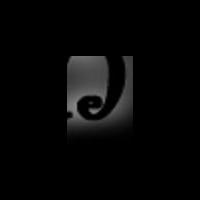Tin nhắn: 35
Nội dung: English
Roberto12 (Xem thông tin cá nhân) 12:52:21 Ngày 10 tháng 1 năm 2010
LA AERO
This has got to be the toughest of them all, particularly with the article! Just try saying it, remembering not to confuse it with la ero.
Miland (Xem thông tin cá nhân) 13:00:08 Ngày 10 tháng 1 năm 2010
If the difficulty is the gap between "la" and "aero", read ceigered's post which I just saw!
ceigered (Xem thông tin cá nhân) 13:00:42 Ngày 10 tháng 1 năm 2010
Also, normally "la" has quite a short duration, where as the "a" in "aero" should be a bit longer - still, "La" shouldn't be reduced to a schwa like "le" in French. Anyway, it should be something like /laʔ'a'ero/.
Hope that helps.
Rogir (Xem thông tin cá nhân) 13:12:50 Ngày 10 tháng 1 năm 2010
ceigered (Xem thông tin cá nhân) 13:21:34 Ngày 10 tháng 1 năm 2010
And I've always said "Care-o" instead of "Kigh-ro" when saying "Cairo"

I personally have trouble with the aŭ sound - The "ow" in Australian English is /æɔ/, so when I try to say that aŭ part in Antaŭ or just aŭ I try to make it sound more European. Problem with that: "au" in European languages sounds almost the same as "ah" follow with a dark L in Aussie English. So whenever "aŭ" comes before anything other than "h" or "r" there's always the chance it'll come out as "al"

Roberto12 (Xem thông tin cá nhân) 17:09:03 Ngày 10 tháng 1 năm 2010
I pronounce Cairo /"kaIr\@U/; what I'm grumbling about in this thread is not something that's also in English.
And postscio (what does that mean btw?), though a bit tricky, is perfectly say-able if imagined as post-scio.
LyzTyphone (Xem thông tin cá nhân) 17:35:17 Ngày 10 tháng 1 năm 2010
Momomomomo (Xem thông tin cá nhân) 17:53:04 Ngày 10 tháng 1 năm 2010
Rogir:postscio
 I feel like I'm trying to speak parseltongue.
I feel like I'm trying to speak parseltongue. RiotNrrd (Xem thông tin cá nhân) 22:25:23 Ngày 10 tháng 1 năm 2010
niko-tina:BTW, is there a glotal sound between the "i"s in Hawaii?Technically, yes, but most Americans (or, at least, most west coast Americans) replace it with a "y" sound instead of making the stop. Huh-WHY-ee.
Polaris (Xem thông tin cá nhân) 22:56:50 Ngày 10 tháng 1 năm 2010






